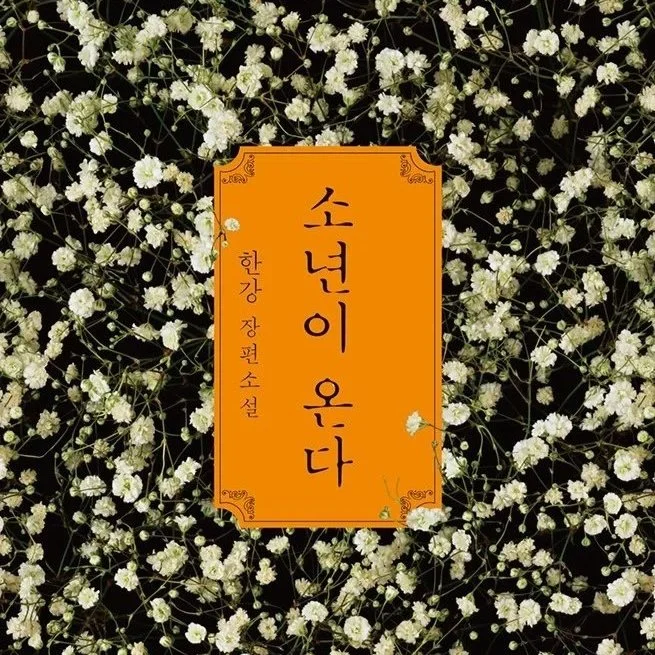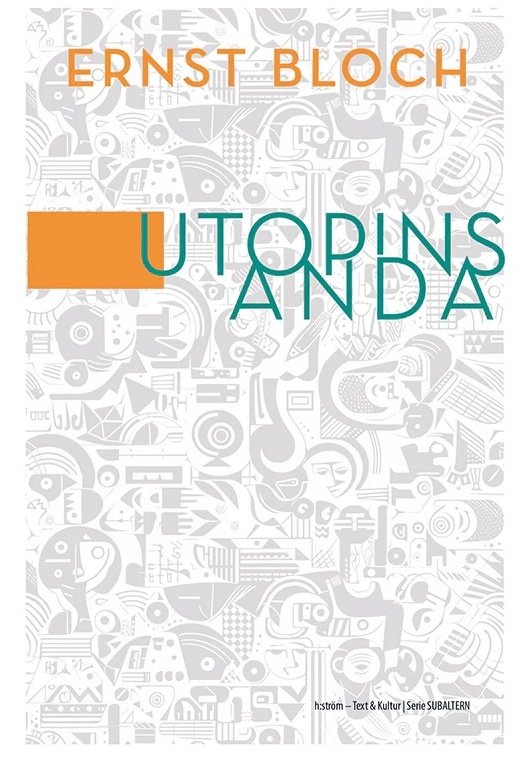Squirrels on the loose: on the Chilean state of exception
/With Gerardo Muñoz’ essay “Squirrels on the loose” we make this blog, Occasional writings (Tillfällighetsskrivande), at least bilingual. The first essay we publish in English is a philosophical and political discussion of the recent development in Chile, where the referendum on the constitution planned to be held in April has been postponed until October due to the 90-day state of catastrophe that Sebastian Piñera issued the 18th of March. Gerardo Muñoz is professor at the modern language and literatures department at Lehigh University, and his most recent publications are Por una política posthegemónica (DobleA editores 2020), and the forthcoming edited volume La rivoluzione in esilio: Scritti su Mario Tronti (Quodlibet, 2020).
The series of articles published by Giorgio Agamben in the wake of COVID-19 have been received with an unsurprising reaction by the night watchmen of liberal democracy. The misunderstanding arises as a coping mechanism comprised of two distinct requests: first, the demand to move away from the conditions informing Agamben’s archeological project (Homo sacer, 1995-2015); and on the other, the desire to make an exception to the current situation; as if, this time “immunity” or a “democratic biopolitics” will effectively redeem Humanity[i]. The nature of this desperate reaction speaks to the fantasy of grounded ‘good politics for the right time’, as if the business of resurrecting principles of legitimation was a credible enterprise during a time of civilizational decay of our species. But at this point, we sure are accustomed to the tone of the university discourse and its strategic deployment as compensatory for its inferiority complex. Undoubtedly, it is the spirit of the time.
It is not my intention to rehearse Agamben’s theses. These are well-known to all of those who have encountered his work on “life”, the state of exception, and the consummation of the oikonomia at heart of Western politics. Rather, I would like to move the discussion to the Chilean case, where I was surprised to see many intellectual voices tapping into Agamben’s premises, in particular in the aftermath of the recent letter of the academics in concern of the COVID-19[ii]. For me this says a great deal about the Chilean experience and its current moment that expands over half a century as a prolonged state of exception. My thesis, then, is that the Chilean debate is in a better position to subscribe to a mature understanding of the state of exception not as an abstract formula, but as something latent within democracies. The dispensation of Western politics into security and exceptionality is not a conceptual horizon of what politics could be; it is what the ontology of the political represents once the internal limits of liberal principles crumble to pieces (the separation between consumers and citizens, state and market, jurisprudence and real subsumption).
Although President Sebastian Piñera has recently passed on a decree on the state of “exceptional catastrophe” in order to face the increasing threat of the COVID-19 in the country, his decision must be placed within the larger context of what we can called the long Chilean state of exception. There are at least three distinct historical segments of this exceptionalism. First, the criollo exceptionalism of the early republican period in which the relation between the state and the constituent power was unbalanced; secondly, the political dictatorial state of exception effectuated in the coup d'état against Salvador Allende’s Unidad Popular government in 1973; and finally, the so called “transition to democracy” of the 1990, which served to juridically optimize what Tomás Moulian called the productivist-consumer matrix of society[iii]. One should not understand these temporal segments as a mere continuation of political instability or erratic juridical illegality, quite the contrary. The Chilean case brings to bear how the normalization of the state of exception could very well live under the veneer of effective legal borders of a subsidiary state that functions as the arbiter of accumulation and debt for societal dynamism. In a groundbreaking essay, “El golpe como consumación de la Vanguardia” (“The Coup as the consummation of the Avant-Garde”, 2003), the Chilean philosopher Willy Thayer argued that the Chilean coup of 1973 was the true avant-garde gesture, and thus, the ‘big-bang’ of globalization, since it blurred the inter-epochal passage from the dictatorship to that of the post-dictatorship. As Thayer argues in a decisive moment of his essay:
The repressed ground of the law – that is, what the law must repress in order to become itself – returns as a norm [in time of post-dictatorship]. The exception becomes the norm. The violence against the unlimited becomes violence against limitation. And if before the exception concerned the norms as exception of the norm; today, in the wake of globalization, what is understood as the exception has become the rule. The state of exception as factical proliferation of the norm is outside all generic norms: the market, the entrepreneurial freedom, the market’s anomie, or any specific norm, as well as any decision around what counts as a norm…Today, it is the Coup, more than artistic practices, what is outside of any frame and it is the destituent gesture, not only against the institution, the habits, and our presumptions about art; but also what alters the codes inherent to understanding. It is the Coup, and not the university, what brings about the reform of subjectivity and thought; it is the Coup what transforms art, the university, politics, and subjectivity itself.[iv]
The Coup introduces a new historical temporality by flattening out the very nature of its exceptionality through the unlimited exchange of values between subjects and things. This takes place within a constitutional arrangement that blocks any ius reformandi and becomes preventively unwarranted. This was, after all, the ideal of legal theorist Jaime Guzmán, who tried to combine a thomist conception of the state as “accident” with a hyper-personalism of the “persona” as a substance[v]. As if already prefiguring the demise of Liberalism’s active social active state, Guzmán incarnates the current drift of the nationalist right’s efforts of reconciling Aquinas with the market, corporativism with the U.S Constitution, and the ‘Common Good’ with the geopolitical battles against the rise of China[vi]. Of course, Guzmán was not a soothsayer, and he did not see this particular arrangement. However, he did see the normalization of the state of exception as a strategy to restrict any pull of ‘civil society’ against the structures of the subsidiary state. If Chile implies anything today it is this: the problem of political exception is not a problem of state form; it is the problem of the exhaustion of the boundaries between state and civil society, where autonomous social form is a zone of extraction for the exchange of value in the face of collective survival. The “tyranny of values” acquires a new meaning here: it is no longer a problem of moral discursivity, but rather an intensification waged on life itself.
We know that the discourse on the ‘withering of civil society’ has been around for quite some time[vii]. But this withering meant that a “political subject” could emerge to organize a new transformation. One might ask: is this, then, what happened during the October uprisings? Not quite, I would argue. Unlike the previous protests of 2003 and 2011, October of 2019 was driven by what has been called an ‘experiential politics’, in which the de-articulation between people and representation no longer attempted to translate its discomfort into ‘demands’ as in populist moments[viii]. The Chilean October was a “parabasis” of the social stage, against representation and ideal types, dispensing a form of errancy that cannot be equated to the modern pursuit of “freedom”. If freedom has always been hermeneutically grounded in an analogical relation to action, then the call for “evasion” of the Chilean October demonstrated that human praxis is irreducible to human activity, and that form of life exists beyond biopolitical security. This is why today, any exercise for a ‘spiritualist’ defense of ‘this life’ is already fallen to biopolitical machination, and to the reproduction of a subjective vitalism in which survival is guaranteed as an abstract non-existential ‘Good’. This is the other side of Thomism. However, we know that “whoever has a character always has the same experience, because he can only re-live and never live. Selfhood is expressed in a character or a habit. In each case, there lies an impossibility of living”[ix]. The new Chilean state of exception is an attempt to combat this truth through a full deployment of the police, the market, the university, the intelligentsia, and the rule of law itself.
The destituent moment against the Chilean exception is waged against the reduction of existence to “life”. As Ivan Illich knew very well, “there is something apocalyptic in searching for Life under a microscope”[x]. Obviously, this resonates clearly with Agamben’s concern about the political strategies’ concern with the “living” and the security of “life”. It is no surprise, on the other hand, how the status quo Chilean intelligentsia has refracted this assault on the vital fabric of human existence by developing new strategies of “order” to counteract what they have called the “party of violence” that seeks to destitute this reduction of the vitalist apparatus[xi]. Other more refined attempts in the restructuring of the Chilean political right, such as Hugo Herrera’s programmatic Octubre en Chile (2019), calls for a popular republicanism, which renews the mediation between society and state through a Schmittian conception of the political as both telluric and contingent. Inverting the terms (politics having the primacy over the economy) places out in the open the dual machine of governance, where polar forces of relative weakness and optimal strength unravel as an interface for social conservation[xii]. This strategy confronts the epochal crisis through the fear of fragmentation and the general contention of the species. The same goes for the modernist proposals based on the supremacy of constituent power and the ideals of the engineering of the “social”, which allocate the force of transformation vis-à-vis “passive devices” (such as assembly deliberation and communicative action, which Chile sponsors a long tradition under the form of cabildos) that could canvas the true colors of democratic separation of powers and cohesiveness of a new social contract. The problem with infinite assembly gathering is that is does nothing to the new mechanisms of power, which today consist of controlling flows, infracstrues, and the general system of extraction[xiii]. We can speak amongst ourselves all we want, but that does not get us anywhere. This call for implicit “communicative unity” of the body polity runs in a circle between life and production and value remain intact.
Giorgio Agamben is correct in stating that it is not surprising that citizens today are willing to accept a reduction of their form of life to bare life in the name of security, since the “crisis” is the way in which governance administers the internal strife of this acephalous polity[xiv]. In a recent column, Hugo Herrera provides an image that captures this movement: the protestors in the streets are like squirrels on the loose[xv]. The squirrel’s movements are a combination between caprice and rhythm; it is not clear where they are going, whom they are going to meet, and what their destiny will be. Like the Pulcinella, half human and half chicken, the running squirrel is what remains when the singular body enters in contact with another without superseding any aspiration for creating self-destiny[xvi]. There is something to be said of the encounter between animal and human that can potentially deprogram the metropolitan topoi, turning the exception into the gleaming transfiguration of another world. In the mere act of seeking, new possibilities emerge. And if the point is to create a different relation to the world where the “potentiality of all the species can be attained”, then every exception is a tool of domestication for political atrophy[xvii]. The destituent possibility is not a realization; it is the questioning the presence of the disjointness of the Social as an ‘autonomous space’ for action. Here too, the Chilean exception offers us a mirror to fly away from the obstinacy of the present.
Gerardo Muñoz
Notes
[i] For positions against Giorgio Agamben’s thesis, see Panagiotis Sotiris, "Against Agamben: Is a democratic biopolitics possible?": https://criticallegalthinking.com/2020/03/14/against-agamben-is-a-democratic-biopolitics-possible/ , and Roberto Esposito, “Curati a oltranza”, https://antinomie.it/index.php/2020/02/28/curati-a-oltranza/
[ii]The document of the letters of the Chilean academics about the COVID-19 can be found here: https://bit.ly/2IW7npd
[iii] Tomás Moulian, Chile Actual: Anatomía de un mito (LOM, 2002), p.81-119.
[iv] Willy Thayer, “El Golpe como consumación de la vanguardia”, El fragmento repetido: escritos en estado de excepción (ediciones metales pesados, 2006), p.24-25.
[v] See, Renato Cristi, El pensamiento político de Jaime Guzmán (LOM, 2011).
[vi] See in the latest issue of American Affairs (Vol. IV, Spring 2020), the articles “Common Good Capitalism: An interview with Marco Rubio”, and “Corporativism for the Twenty-First Century”, by Gladden Pappin. Also, on the reactivation of an economic Thomism, see Mary L. Hirschfield, Aquinas and the Market: Toward a Humane Economy (Harvard University Press, 2018).
[vii] Michael Hardt, “The withering of civil society”, Social Text, N.45, 1995.
[viii] See Michalis Lianos, "Une politique expérientielle": https://lundi.am/Une-politique-experientielle-IV-Entretien-avec-Michalis-Lianoswell. Also, the dossier on the Chilean uprising, "Los estados generales de la emergencia", Ficción de la razón, october 2019: https://ficciondelarazon.org/2019/10/29/vvaa-los-estados-generales-de-emergencia-dossier-en-movimiento-sobre-revueltas-y-crisis-neoliberal/
[ix] Giorgio Agamben, Pulcinella or, Entertainment for Kids (New York, 2018), p.104.
[x] Ivan Illich, “The Institutional Construction of a new fetish: Human Life”, In the Mirror of the Past: Lectures and Addresses, 1978-1990(Marion Boysars, 1992), p.223.
[xi] José Joaquin Brunner, “Violencia: el desquiciamiento de la sociedad”, November 2019, El Libero: https://ellibero.cl/opinion/jose-joaquin-brunner-violencia-el-desquiciamiento-de-la-sociedad/.
[xii] Schmitt taught as early as in the twenties this state-market duality. See, “Strong State and Free Economy", in Carl Schmitt and Authoritarian Liberalism (University of Wales Press, 1998), ed. Renato Cristi. p.215.
[xiii] For the thesis on the control of social flows, see “Julien Coupat et Mathieu Burnel interrogés par Mediapart", Lundi Matin, 66, 2016: https://bit.ly/3bdRAOs . For the new form of power as extraction, see Alberto Moreiras, "Notes on the illegal condition in the state of extraction", RIAS, Vol.11, N.2, 2018, p.21-35.
[xiv] Giorgio Agamben, “Chiarimenti", March 17, 2020, Quodlibet: https://www.quodlibet.it/giorgio-agamben-chiarimenti. Denna text finns också på svenska här.
[xv] Hugo Herrera, “Crisis sobre Crisis”, March 17, 2020, La Segunda: https://bit.ly/2Wvc0i0.
[xvi] Giorgio Agamben, Pulcinella or, Entertainment for Kids (New York, 2018), p.117.
[xvii] Jacques Camatte, “The Wandering of Humanity”, in This World We Must Leave and Other Essays (Autonomedia, 1995), p.71.































